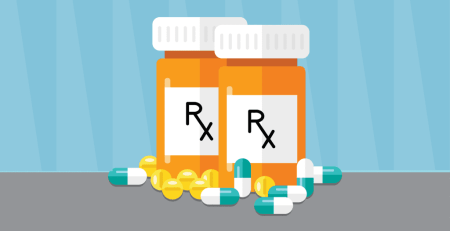Antibiotics, Probiotics and Gut Health
When prescribed antibiotics, the concern for potential side effects on gut health often arises. The delicate balance of the gut microbiome can be disrupted by certain medications, leading to issues like diarrhea and more severe complications. However, emerging research suggests that pairing antibiotics with probiotics can be a beneficial strategy. In this article, we’ll delve into the key takeaways regarding the relationship between antibiotics and probiotics.
Why Combine Antibiotics with Probiotics?
The gut microbiome, teeming with beneficial bacteria, plays a crucial role in digestion, immune function, and overall health. Antibiotics, while effective against harmful bacteria causing infections, can inadvertently harm the good bacteria in the gut, resulting in side effects like diarrhea. Probiotics, when taken concurrently, act as a protective shield for the gut microbiome, minimizing the risk of antibiotic-related complications.
Research Supporting Probiotics with Antibiotics:
Numerous studies endorse the use of probiotics alongside antibiotics, particularly emphasizing their efficacy in preventing antibiotic-associated diarrhea. The American Gastroenterological Association recommends probiotics for both children and adults undergoing antibiotic treatment. However, certain groups, such as individuals over 65, those hospitalized, or with weakened immune systems, stand to benefit the most.
Probiotics and Antibiotic-Associated Conditions:
Taking probiotics has been linked to a significant reduction in the occurrence of antibiotic-associated diarrhea, with some studies reporting up to a 50% decrease in risk. Additionally, probiotics show promise in preventing the development of Clostridioides difficile (C. diff) colitis, a severe side effect of antibiotics. Moreover, research suggests that probiotics may enhance the effectiveness of specific antibiotic treatments, such as those targeting Helicobacter pylori and bacterial vaginosis.
Protecting Overall Gut Health:
Beyond preventing immediate side effects, probiotics play a role in safeguarding long-term gut health. Antibiotics’ potential to alter the gut microbiome has been associated with increased risks of conditions like diabetes, obesity, and asthma. Probiotics offer a protective mechanism, although the extent of their ability to prevent chronic conditions remains an active area of research.
Timing Matters:
While taking probiotics during antibiotic treatment is generally considered safe, studies suggest that taking them afterward may not be as beneficial. A small-scale study found that recovery of gut bacteria took longer in those who took probiotics post-antibiotics. It is advisable to consult healthcare providers for personalized guidance on probiotic supplementation.
Safety Considerations:
For most individuals, combining antibiotics with probiotics is safe. However, caution is warranted for those with weakened immune systems, as rare cases of infections linked to probiotics have been reported. If you fall into this category, consulting your healthcare provider before starting a probiotic regimen is advisable.
Choosing the Right Probiotic:
Amidst the multitude of probiotic options, two strains stand out with robust evidence supporting their benefits alongside antibiotics: Lactobacillus rhamnosus GG (L. rhamnosus GG) and Saccharomyces boulardii (S. boulardii). These strains are recommended for their effectiveness in preserving gut health during antibiotic treatment.
The relationship between antibiotics and probiotics is a nuanced one, with research pointing towards potential benefits, especially in mitigating antibiotic-associated complications. Understanding the dynamics, consulting with healthcare providers, and selecting the right probiotic strains can contribute to maintaining a healthy gut microbiome during antibiotic therapy.











